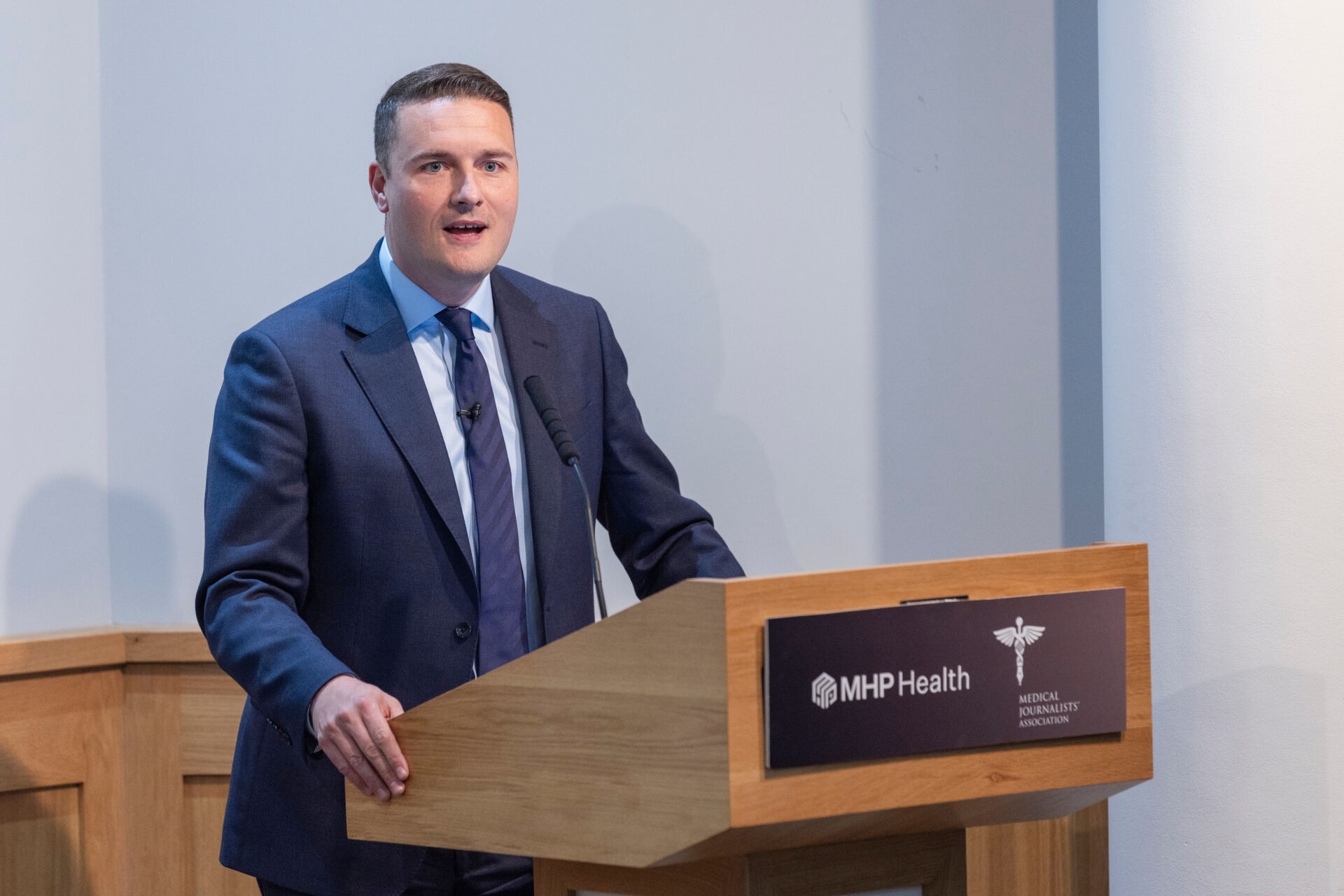Primary care’s proportion of the NHS budget ‘ought to increase’, according to the shadow health secretary, Wes Streeting.
The Labour MP was speaking at an event organised by the Medical Journalists Association in London yesterday evening.
He said that primary care had ‘a lot to look forward to’ if Labour wins the general election on 4 July, and that they will work to ‘fix the front door of the NHS and primary care’.
In response to a question on what kind of health secretary he would be, he said he wanted to establish a culture of partnership and mutual accountability.
He said: ‘For the NHS to thrive, you need every tier of the system making the contribution only they can make to make sure the system is in the right place. And that includes political leadership. So, I think the relationship has got to be one of mutual accountability.
‘I’m totally up for system leaders, chief executives, primary care leaders, telling me what we need to do at the centre, to enable them to do the job that they need to do for patients.’
He added that there was a conversation that needs to be had with the system about where decisions sit.
‘I’m generally in favour of more devolution, believing that decisions about service configuration and how services delivered are best left closer to the communities that those public services because the needs of different parts of the country are different,’ he said.
‘The opportunities and constraints are different in different parts of the country. You want to allow that flexibility in both in terms of design and want to encourage an innovation spirit and culture where people can dare to do things differently and try new things and share their learning with others. But especially on things like procurement, there is a very obvious cost benefit in terms of doing more centrally.’
However, he said the rollout of the federated data platform (FDP) was an example of one that had been ‘too permissive’ and ‘lazy’ as something that had cost a significant amount of taxpayer money and was of ‘vital national strategic importance’ as a project.
On the reluctance to include primary care in the FDP, he said the reasons ‘really didn’t wash with me’.
He said: ‘When I’ve heard people say, “I’m not sure about Palantir”, or “I’m not sure that the NHS has a really good track record on that sort of project”. I’m sorry, but that doesn’t wash with me. There’s been a national decision taken with significant investment of public money, this is a vital importance to patients.
‘Similarly, when people say we didn’t want to include primary care in this because people have been reluctant, or primary care providers been reluctant in the past, there’s all sorts of producer interest – producer interest really doesn’t wash with me either.’
He said this was a good example of how there needed to be a ‘more effective culture’ of innovation within the NHS.
‘Patients ultimately care about two things. Is my data being held securely? Is it being used ethically? And as long as the answer to both of those questions is yes, patients are surprised that if they’re knocked down by a bus, and then blue lighted to an A&E, that the people treating them do not have a full account of their patient record,’ he said.
It comes as all of the main political parties have now published their manifestos ahead of the election next month.
The Conservatives have pledged to modernise primary care services, while Labour said it would trial neighbourhood health centres in their manifesto.
The Liberal Democrats said they would give patients a right to see a GP within seven days, whereas Reform has promised private healthcare vouchers if patients cannot see one within three. The Green party meanwhile has promised more funding for primary care.
This week the King’s Fund has released a summary of all the major commitments from the three main political parties on the NHS, social care and public health, including detail on their costings.




